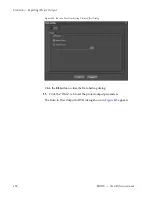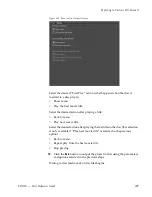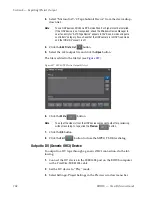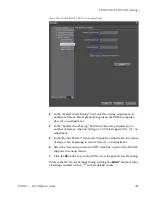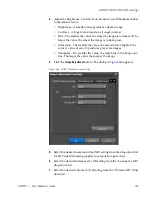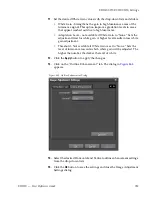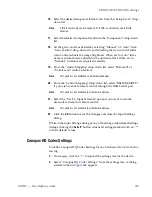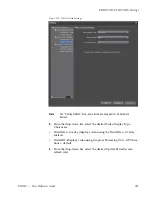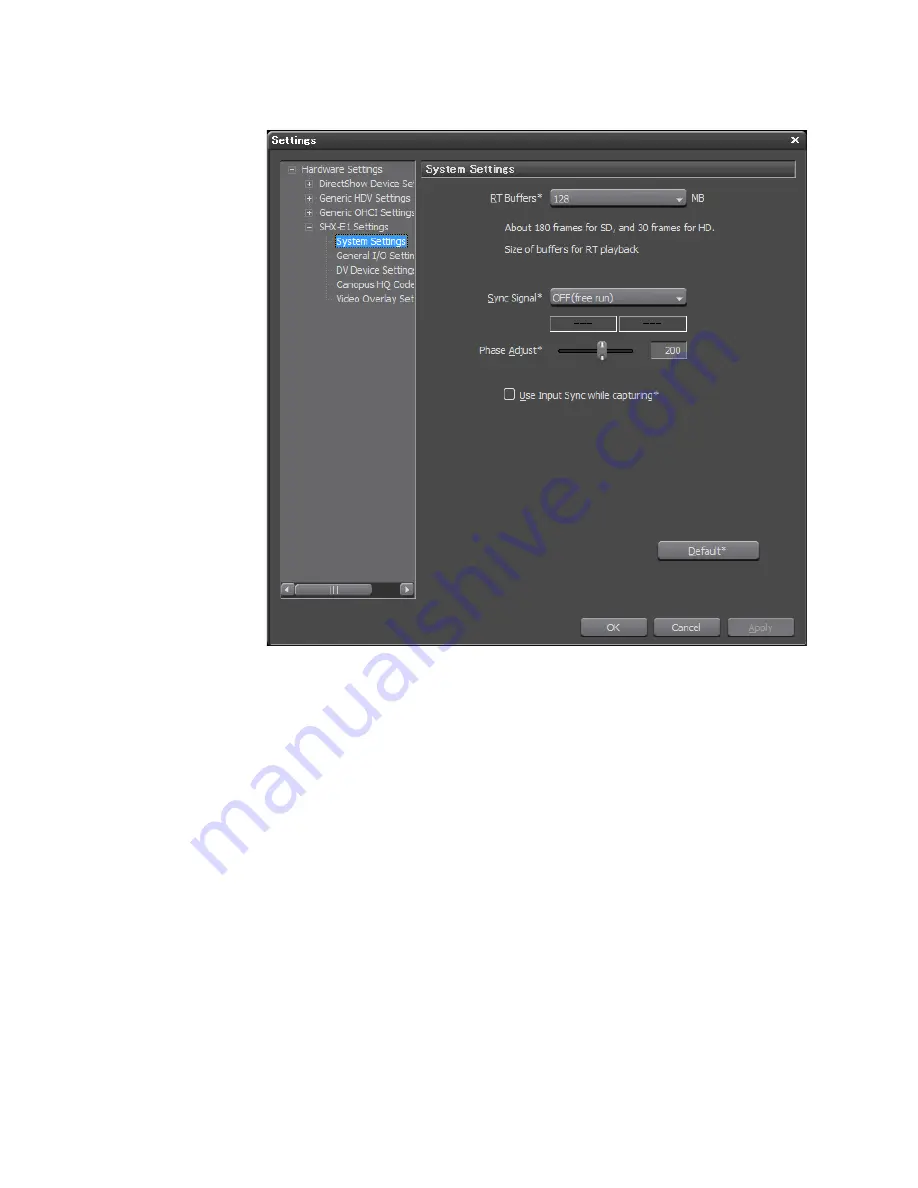
710
EDIUS — User Reference Guide
Appendix A — Hardware Settings
Figure 862. SHX-E1/SHX-E2 System Settings Dialog
3.
From the drop-down list, select the RT buffer frame size (stated as a
number of Megabytes). Choices are: 128 (default), 256, 384, 512.
Note
EDIUS renders ahead using the Real-Time playback buffer from which frames
are then taken for playback. Memory reserved for the RT buffer is not avail-
able to other programs. If the RT buffer is too large, the system may run out
of physical memory which will degrade real-time playback performance.
Adjust the RT buffers with caution.
Note
After changing the size of RT buffers, EDIUS must be restarted for the change
to take effect.
4.
From the Sync Signal drop-down list, select the desired Sync Signal
type. The choices are “REF input sync”, “Input sync” and “OFF(free
run).”
Note
If the selected reference method does not supply the correct sync signal, it
will be automatically adjusted to a suitable method. For example, during play-
back, if there is no sync signal, the settings will change to “OFF(free run).”
During capture, it will be set to “Input Sync” automatically.
Summary of Contents for EDIUS
Page 22: ...22 EDIUS User Reference Guide Preface ...
Page 124: ...124 EDIUS User Reference Guide Section 1 Getting Started Figure 111 Sequence Marker Palette ...
Page 173: ...EDIUS User Reference Guide 173 Customize Settings Figure 153 Keyboard Shortcut Settings ...
Page 248: ...248 EDIUS User Reference Guide Section 3 Capturing and Importing Clips and Stills ...
Page 302: ...302 EDIUS User Reference Guide Section 4 Clip Operations and Management ...
Page 480: ...480 EDIUS User Reference Guide Section 5 Timeline Operations ...
Page 708: ...708 EDIUS User Reference Guide Section 8 Exporting Project Output ...
Page 752: ...752 EDIUS User Reference Guide Appendix A Hardware Settings ...
Page 764: ...764 EDIUS User Reference Guide Appendix B Special Procedures ...
Page 778: ...778 EDIUS User Reference Guide Appendix C Input Output Formats ...

